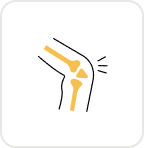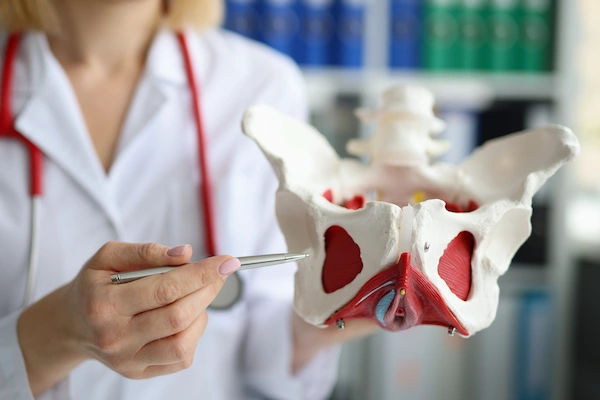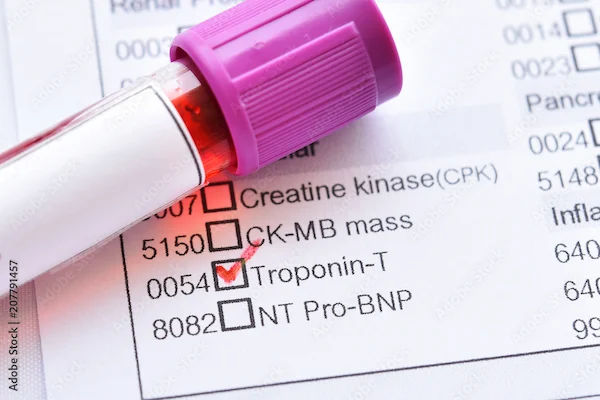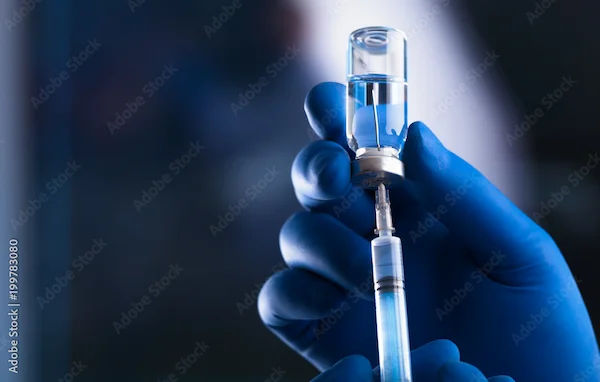Weak Bones: Signs, Causes, and Treatm
Learn the signs and causes of weak bones, along with effective treatment options to improve bone strength and prevent complications.


Introduction
Have you ever wondered if your bones are as strong as they should be? For millions, weak bones are a silent, symptomless condition that only announces itself with a sudden fracture from a minor fall or even a strong cough. This isn't just an inevitable part of aging; it's a manageable health concern. This comprehensive guide will help you understand the subtle signs of weakening bones, identify your risk factors, and outline actionable steps from nutrition and exercise to medical interventions that you can take to protect and strengthen your skeletal foundation for years to come. Recognising the early signs of bone loss is the first critical step toward prevention.
Are Your Bones Whispering? Early Signs and Symptoms of Weak Bones
Weak bones, often medically diagnosed as osteopenia (low bone mass) or osteoporosis (porous bones), are notorious for being a "silent disease." However, your body might be sending you subtle signals long before a fracture occurs.
The Silent Symptoms You Might Be Ignoring
While often asymptomatic, some individuals experience vague clues that their bone density might be declining. These can include:
- Receding Gums: Your gums can recede if the bone supporting your jaw is weakening.
- Weakened Grip Strength: Studies have linked a weaker handgrip to lower bone mineral density in various parts of the body.
- Brittle Fingernails: While not a definitive diagnostic tool, consistently weak and cracked nails can sometimes correlate with nutritional deficiencies that also affect bones.
- Loss of Height: Losing more than an inch of height can be a sign of compression fractures in the spine, a common consequence of osteoporosis.
Consult an Orthopaedician for the best advice
The Red Flags: When a Fracture Signals a Bigger Problem
The most serious symptom is a fragility fracture, a break that occurs from a fall from standing height or less, or even without any trauma. Common sites include the hip, spine, and wrist. A fracture in the spine might not even be painful but can cause a stooped posture (kyphosis) or persistent back pain.
Why Do Bones Lose Their Strength? The Key Culprits
Bone is living tissue that is constantly being broken down and replaced. Weak bones occur when the creation of new bone doesn't keep up with the removal of old bone. Several factors drive this process.
The Unchangeable Risk Factors
Some risks are beyond our control, but knowing them helps assess your overall risk:
- Gender: Women are at significantly higher risk, especially after menopause due to dropping estrogen levels.
- Age: Bone loss naturally accelerates after the mid-30s.
- Body Frame Size: Men and women with small body frames tend to have a higher risk because they may have less bone mass to draw from as they age.
- Family History: Having a parent or sibling with osteoporosis puts you at greater risk.
- Race: Those of White or Asian descent are at highest risk.
Lifestyle and Dietary Factors Within Your Control
This is where you have the most power. Key contributors include:
- Low Calcium & Vitamin D Intake: A lifelong lack of calcium and vitamin D plays a major role in the development of osteoporosis.
- Sedentary Lifestyle: People who sit a lot have a higher risk than those who are active.
- Tobacco and Alcohol Use: Regular heavy alcohol consumption and tobacco use significantly interfere with the body's ability to absorb calcium.
- Eating Disorders: Severely restricting food intake and being underweight weakens bone.
Medical Conditions and Medications That Affect Bone Health
Certain conditions like celiac disease, inflammatory bowel disease, kidney or liver disease, and hormonal disorders (e.g., thyroid problems) can affect bone health. Long-term use of corticosteroid medications (e.g., prednisone) is also a major culprit.
How Are Weak Bones Diagnosed? Moving Beyond Guesswork
If you are at risk or experiencing symptoms, a proper diagnosis is crucial. Self-diagnosis is not recommended. If your condition does not improve after trying these methods, book a physical visit to a doctor for further evaluation.
The Gold Standard: The DEXA Scan (Bone Density Test)
A Dual-Energy X-ray Absorptiometry (DEXA or DXA) scan is a quick, painless test that measures bone mineral density (BMD). It's typically done on the hip and spine. Your results are given as a T-score:
- Normal: -1.0 and above
- Osteopenia (Low bone mass): Between -1.0 and -2.5
- Osteoporosis: -2.5 and below
Get Your Health Assessed
Other Tests and Assessments Your Doctor Might Recommend
Your doctor might also order blood tests to check for vitamin D levels, calcium, thyroid function, and other markers. Apollo24|7 offers a convenient home collection for tests like vitamin D, making it easier to get the information you need.
Building Fort Knox: Treatment and Management Strategies
A diagnosis of weak bones isn't a fate; it's a call to action. Treatment focuses on slowing bone loss and building new bone.
Prescription Medications to Halt Bone Loss and Build Bone
Several classes of drugs are available, including bisphosphonates, monoclonal antibody medications, and hormone-related therapy. The best choice depends on your sex, age, bone health, and personal risk factors.
The Dynamic Duo: Calcium and Vitamin D Supplementation
Most adults need 1,000–1,200 mg of calcium and 600–800 IU of vitamin D daily. While diet is best, supplements are often necessary to meet these goals, especially for vitamin D deficiency.
The Role of Physical Therapy and Safe Exercise
A physical therapist can design a safe program to improve balance, posture, and strength, reducing fracture risk. Weight-bearing and muscle-strengthening exercises are pillars of how to increase bone density naturally.
Prevention is Powerful: How to Build Strong Bones for Life
It's never too early or too late to invest in your bone health.
Nutrition for Bone Health: More Than Just Milk
Focus on a diet rich in calcium rich foods for bones like dairy, leafy greens, sardines, and fortified foods. Also include magnesium (nuts, seeds) and vitamin K (leafy greens) for a holistic approach.
The Best Exercises to Stimulate Bone Growth
Bones get stronger when you "stress" them. The best exercises for osteoporosis and prevention include:
- Weight-Bearing: Walking, jogging, dancing, tennis.
- Strength Training: Free weights, resistance bands, body-weight exercises.
- Balance & Stability: Tai chi, yoga.
Lifestyle Tweaks for Maximum Bone Protection
Quit smoking, limit alcohol, and ensure your home is fall-proof (remove rugs, improve lighting). These simple changes dramatically reduce your risk of a life-altering fracture.
Conclusion: Taking Proactive Steps for Stronger Bones
Your bone health is a lifelong investment. While factors like age and genetics play a role, the power to influence your skeletal strength lies largely in your hands through informed lifestyle choices. By understanding the signs of weak bones, adopting a bone-healthy diet rich in essential nutrients, engaging in regular weight-bearing exercise, and avoiding harmful habits, you can build a resilient framework for your body. If you suspect you might be at risk, don't hesitate to seek professional guidance. Taking proactive steps today can ensure your bones continue to support you strongly and safely for all your tomorrows.
Consult an Orthopaedician for the best advice
Consult an Orthopaedician for the best advice

Dr. Anil Pradeep Jadhav
Orthopaedician
23 Years • MBBS MS (Ortho)
Nashik
Apollo Hospitals Nashik, Nashik
(25+ Patients)

Dr. Rupam Chowdhury
Orthopaedician
10 Years • MBBS, DNB (Ortho.)
Kolkata
MCR SUPER SPECIALITY POLY CLINIC & PATHOLOGY, Kolkata

Dr. Suraj Prakash
Orthopaedician
5 Years • MBBS, MS (Ortho)
Bengaluru
Apollo Clinic, Indiranagar, Bengaluru

Dr. Padam Singh Gautam
General Physician/ Internal Medicine Specialist
43 Years • M.B.B.S (WARDHA M. S.), F.A.G.E. (MANIPAL), F.A.I.M.S. (Pb.), M.A.I.M.S. (Pb.), M.R.S.H. (LONDON)
Noida
Dr Padam Singh Gautam Fracture Clinic, Noida
(250+ Patients)

Dr. Susheel B
Orthopaedician
13 Years • MBBS, MS, Ortho Fellowship in Trauma ( Germany) Fellowship in Arthroscopy and Arthroplasty ( Switzerland)
Bengaluru
Apollo Medical Center, Marathahalli, Bengaluru
Consult an Orthopaedician for the best advice

Dr. Anil Pradeep Jadhav
Orthopaedician
23 Years • MBBS MS (Ortho)
Nashik
Apollo Hospitals Nashik, Nashik
(25+ Patients)

Dr. Rupam Chowdhury
Orthopaedician
10 Years • MBBS, DNB (Ortho.)
Kolkata
MCR SUPER SPECIALITY POLY CLINIC & PATHOLOGY, Kolkata

Dr. Suraj Prakash
Orthopaedician
5 Years • MBBS, MS (Ortho)
Bengaluru
Apollo Clinic, Indiranagar, Bengaluru

Dr. Padam Singh Gautam
General Physician/ Internal Medicine Specialist
43 Years • M.B.B.S (WARDHA M. S.), F.A.G.E. (MANIPAL), F.A.I.M.S. (Pb.), M.A.I.M.S. (Pb.), M.R.S.H. (LONDON)
Noida
Dr Padam Singh Gautam Fracture Clinic, Noida
(250+ Patients)

Dr. Susheel B
Orthopaedician
13 Years • MBBS, MS, Ortho Fellowship in Trauma ( Germany) Fellowship in Arthroscopy and Arthroplasty ( Switzerland)
Bengaluru
Apollo Medical Center, Marathahalli, Bengaluru
More articles from General Medical Consultation
Frequently Asked Questions
Can you reverse bone loss once it has started?
While you may not fully 'reverse' osteoporosis to a normal T-score, you can significantly improve bone density and strength through a combination of prescription medications, adequate calcium and vitamin D intake, and specific exercises. Treatment can halt further loss and stimulate new bone formation.
What is the difference between osteopenia and osteoporosis?
Think of osteopenia as a midpoint between healthy bones and osteoporosis. It means your bone mineral density is lower than normal but not yet low enough to be classified as osteoporosis. It's a warning sign to take action to prevent progression.
I'm young; do I need to worry about weak bones?
Yes, but from a prevention standpoint. Your 20s and early 30s are your prime bone-building years. Maximising bone density through diet and exercise during this time creates a larger 'bone bank' to draw from as you age, reducing future risk significantly.
Are there any natural remedies for strengthening bones?
The most effective 'natural' strategies are nutritional and exercise-based. Ensure sufficient intake of calcium, vitamin D, protein, and other bone-supporting nutrients through whole foods. Engage consistently in weight-bearing and resistance exercises. Always discuss any new supplements or major lifestyle changes with a doctor.
How often should I get a bone density test?
If you have normal bone density or mild osteopenia, your doctor might recommend a repeat test in 3-5 years. If you are on medication for osteoporosis, testing is typically done every 1-2 years to monitor the treatment's effectiveness.







